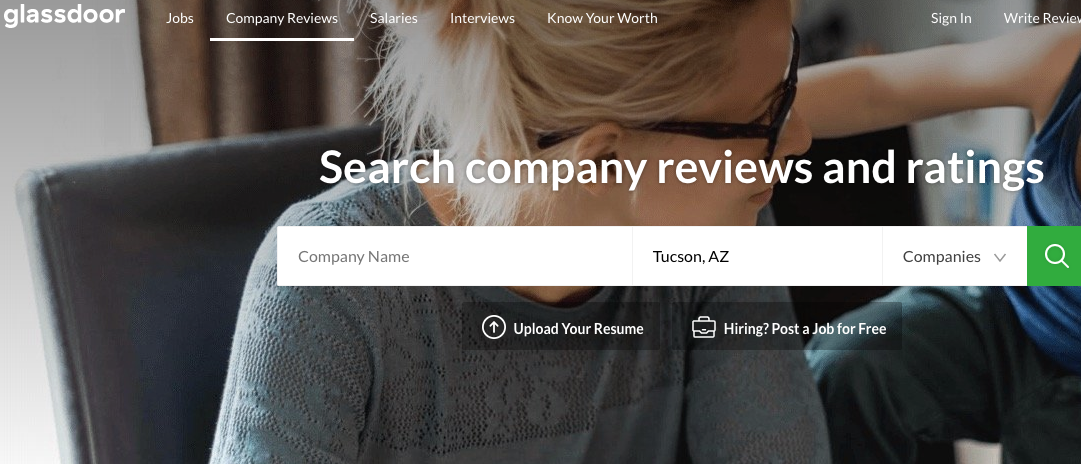PHOENIX — Those comments you post online about your employer, and others, may not be as anonymous as you thought.
That’s the statewide and potentially national implication of a new ruling by a federal appeals court in an Arizona case.
A website known as Glassdoor.com went to court to block federal prosecutors from demanding that it surrender the names of people who had written anonymous posts about their company, which is not identified in the court papers but is being investigated by a grand jury in Phoenix.
Attorneys for Glassdoor, which provides both job listings as well as reviews of companies, argued that the people who shared the comments did so with the understanding that they would not come back to haunt them.
But the 9th U.S. Circuit Court of Appeals said Glassdoor must give prosecutors information they have about the people so they can be questioned by the grand jury.
The new decision most immediately affects efforts by federal prosecutors to look into whether a government contractor that administers two health-care programs for the Department of Veterans Affairs in Arizona committed wire fraud and misused government funds.
But the ruling essentially means that when the government decrees it needs information as part of a grand jury probe, it can force those who operate websites to help them find who made the comments, even though the postings were designed to be anonymous.
That legal conclusion, by definition, is not limited to employees of a firm under grand jury investigation. It also paves the way for prosecutors to seek the identity of anyone whose online comments about any other business — or even individual — lead them to believe they have information relevant to their inquiry.
A Glassdoor spokeswoman said Thursday that the ruling is a disappointment because the firm believes the trial judge in Arizona who agreed to the subpoena applied the wrong standard, “placing the interests of the government ahead of Americans’ protected free-speech rights under the First Amendment.” The company believes those rights include “sharing opinions online about their workplaces anonymously,” she said.
Coatney said the company is weighing whether to pursue an appeal, which could put the issue before the U.S. Supreme Court.
According to court records, as of earlier this year, current and former employees of the unidentified company being investigated had posted 125 reviews on Glassdoor.com. Appellate Judge Richard Tallman, writing for the court, said many of these criticize the firm’s management and business practices.
For example, the judge said, one anonymous employee wrote that the company “manipulates the system to make money unethically of the veterans/VA.” Another said there is “a real disconnect between how this program runs and how the VA thinks the program runs.”
In March, the federal government served Glassdoor with a subpoena ordering it to provide “reviewer information” for every review on the site, including user names, email addresses, résumés, and billing information like credit-card numbers.
After Glassdoor objected, the government agreed to limit the scope to eight specific reviews. When Glassdoor refused, a judge found it in contempt and imposed a fine of $5,000 a day, which has been on hold while the case is on appeal.
Tallman, in the 24-page ruling, acknowledged there are certain rights at issue.
“An author’s decision to remain anonymous ... is an aspect of the freedom of speech protected by the First Amendment,” he wrote, quoting from earlier cases. “However, the right to speak anonymously is not unlimited,” the judge said, with the issue depending on the circumstances and the type of speech at issue.
“Here, the government seeks to unmask anonymous speakers in order to identify potential percipient witnesses in aid of a federal grand jury investigation into possible fraud,” Tallman said. “The speakers whose identities the government seeks may well be witnesses to this criminal activity, perhaps even participants in it.”
Moreover, the judge said the U.S. Supreme Court has held that reporters — even those who have promised confidentiality to sources — must cooperate with grand jury investigations. He said Glassdoor has no right to refuse to tell the government how to contact those people because those who made the postings have no First Amendment right to avoid testifying in the first place.
There is an exception, Tallman said, when there is evidence that a subpoena was not issued in good faith, something not alleged here. And the judge said there is no evidence the government is on a “fishing expedition.”
Instead, he said, the postings at issue give prosecutors — and the court — reason to believe that the people who wrote them have information that would be helpful.
One, he noted, says the company created a system that focuses more on call quotas, versus “designing a more efficient system to assist veterans,” as the firm gets paid by the VA based on the number of calls made.
Forcing Glassdoor to disclose the identities of posters, Tallman said, will enable the grand jury to question workers who have observed potentially fraudulent behavior.
“Thus, there is a clear connection between the nature of the investigation — waste, fraud, and abuse by the subject — and the information the government seeks — the identity of potential witnesses to that fraud and abuse.”





